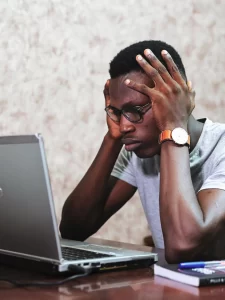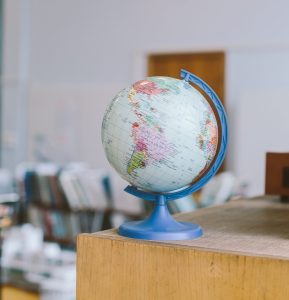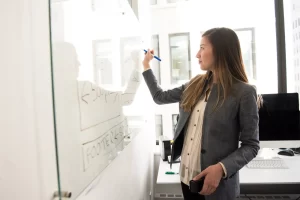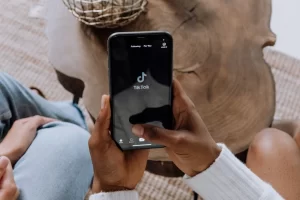 Princeton Public Schools has a mission “to prepare all of our students to lead lives of joy and purpose as knowledgeable, creative and compassionate citizens of a global society.” The Hun School of Princeton “empowers each student to thrive in a diverse and ever-changing world…” and Princeton Day School’s philosophy is to “seek diversity of cultures, views and talents to promote the intellectual growth and moral development of our students.” As the Israel-Hamas War wages on, do teenagers and young adults find their educations have prepared them for the global conversations and situations they now find themselves in?
Princeton Public Schools has a mission “to prepare all of our students to lead lives of joy and purpose as knowledgeable, creative and compassionate citizens of a global society.” The Hun School of Princeton “empowers each student to thrive in a diverse and ever-changing world…” and Princeton Day School’s philosophy is to “seek diversity of cultures, views and talents to promote the intellectual growth and moral development of our students.” As the Israel-Hamas War wages on, do teenagers and young adults find their educations have prepared them for the global conversations and situations they now find themselves in?
“I think my school does a decent job in preparing us for global conversations, but it also depends on the topic,” shares Princeton High School Senior, Maiyin H. “The Israel-Hamas War is one of those topics where teachers are treading very lightly because of how polarizing and contentious different views can be. I, for one, do not feel comfortable expressing a different view or asking a question that may not be ‘PC.’ As someone who is not Jewish or of Middle Eastern descent, I often feel like I don’t have the right to express an opinion because I ‘don’t have any skin in the game.’ Talking about the war, which is complicated and goes back thousands of years, is difficult and I understand that, but oversimplifying the history is not the answer either.”
 What does NJ do to prepare today’s teens and young adults to engage in conversations about global situations? The NJ Department of Education’s mission states “Social studies education provides learners with the knowledge, skills, attitudes, and perspectives needed to become active, informed, and contributing members of local, state, national, and global communities.” To do so, there are requirements to learn world history/global studies in both middle and high school. To graduate, 15 credits of social studies are required, including 5 credits of World History.
What does NJ do to prepare today’s teens and young adults to engage in conversations about global situations? The NJ Department of Education’s mission states “Social studies education provides learners with the knowledge, skills, attitudes, and perspectives needed to become active, informed, and contributing members of local, state, national, and global communities.” To do so, there are requirements to learn world history/global studies in both middle and high school. To graduate, 15 credits of social studies are required, including 5 credits of World History.
“I’ve taken history classes that I feel have prepared me and given me confidence to engage in discussions. Wars over land and religion have been going on in our world for centuries,” says PHS Senior Charlie Ross.
New Jersey education law also stipulates that “every board of education shall include instruction on the Holocaust and genocides in an appropriate place in the curriculum of all elementary and secondary school pupils.”
Over the past several years, Princeton Public Schools has added mandatory racial literacy education to the curriculum which the website states “has a foundation in pedagogies developed to advance social justice, cultural responsiveness, and multiculturalism.” Though included, teaching about antisemitism and Islamophobia have not been a major focus of this curriculum to date. Overall, at schools in Princeton and elsewhere, the goal of all of this education remains to develop informed citizens about the world, its history, and its citizens.
“As for curriculum, the history of Israel is not something really focused on in most NJ state educations. World History is mostly history of the western world – the Romans, Greeks, Renaissance. And most of high school education is U.S. history,” explains Sara Fernandez, who recently retired as a Social Studies teacher at Cranbury School after 26 years of teaching. “Israel and the Palestinians is maybe taught in detail in elective classes, but probably not in regular mainstream classes.”
 In recent weeks, some teachers have chosen to speak in their classrooms about what is happening across the world (at varying degrees of success), while others have not. Some independent schools, like Princeton Day School, have taken the initiative to bring in an expert on the Middle East in an effort to respond to questions about the Israeli-Palestinian conflict. When it comes to Holocaust and genocide, though the requirement is fulfilled differently at each district and independent schools are not bound to such state requirements, the curriculums aim to help students learn about some of history’s mistakes. With the Israel-Hamas War leading some around the world to include mentions of genocide and reignite Nazi propaganda, that education can be relevant and important. In Princeton, this education had fallen out of the middle school curriculum for several years but is said to be back through 7th grade English and 8th grade Civics classes. In the high school, it mainly comes through the sophomore English course and is included in various U.S. and World History curriculums. There has been a year-long audit underway to determine what and how the information is being relayed.
In recent weeks, some teachers have chosen to speak in their classrooms about what is happening across the world (at varying degrees of success), while others have not. Some independent schools, like Princeton Day School, have taken the initiative to bring in an expert on the Middle East in an effort to respond to questions about the Israeli-Palestinian conflict. When it comes to Holocaust and genocide, though the requirement is fulfilled differently at each district and independent schools are not bound to such state requirements, the curriculums aim to help students learn about some of history’s mistakes. With the Israel-Hamas War leading some around the world to include mentions of genocide and reignite Nazi propaganda, that education can be relevant and important. In Princeton, this education had fallen out of the middle school curriculum for several years but is said to be back through 7th grade English and 8th grade Civics classes. In the high school, it mainly comes through the sophomore English course and is included in various U.S. and World History curriculums. There has been a year-long audit underway to determine what and how the information is being relayed.
“We read Anne Frank’s The Diary of a Young Girl in school and had a Holocaust survivor give a talk to students. We learned about antisemitism. But we mostly learned it as a historical event tied to WWII and the Nazis. I was shocked to see this genocidal hatred openly displayed in broad daylight,” expresses Sarah Chen, a PHS sophomore.
It might be unreasonable to expect that schools can fully educate students on all they need to know about this specific issue, since Israelis and the Palestinians have a complicated past. Conversations about the Israel-Hamas war and the ensuing reactions around the world are encumbered by the nuances of the history of the region and the fact that religion is involved. For many, the war is not just something 5,700 miles away. Locally, it has ignited academia, led to rallies, vigils, and taken over news channels and social media feeds. College students are confronted with what is happening on a regular basis. There are also courses, more directly aimed at public policy, global affairs, the Middle East and more where the topic is a natural part of the discussion there. If not in these particular classes, what kind of background do students get to prepare them for such conversations?
“Patience, empathy, understanding and listening skills are built every day in our class so when we get to these conversations you have a community that is patient and understanding,” Fernandez shares. “You have to talk to people you don’t always agree with.”
 Beyond the classrooms and campuses, teens and young adults today have at their fingertips access to information that feeds their minds and opinions. Depending who you follow on social media, what you read and watch on the internet, can have a large impact on the knowledge you hold and on how you engage on this issue. When it comes to using it as a tool for education, that is where some additional education might be needed.
Beyond the classrooms and campuses, teens and young adults today have at their fingertips access to information that feeds their minds and opinions. Depending who you follow on social media, what you read and watch on the internet, can have a large impact on the knowledge you hold and on how you engage on this issue. When it comes to using it as a tool for education, that is where some additional education might be needed.
“Social media can be positive and negative. When the Ukranian war broke out, my students learned so much. That part of the world was something they hadn’t been exposed to much. Some Tik Tok videos were of reporters posting and they were right and good. So, that’s a medium children love,” Fernandez notes. “But at the same time, social media is also filled with the worst of the worse students are finding too. When they hear the word Israel, it’s just a tiny country in the middle of nowhere, and unless you’re Jewish or Arabic or have origins from that part of the world, most kids don’t care. They have no context and are being bombarded with images.”
Recognizing the significant role it has on them, in July, NJ Governor Phil Murphy established a commission to study the effects of social media on adolescents. The results will come out long after the impacts are made regarding today’s war and possibly even tomorrow’s troubles.
“I get most of my education on these issues through social media,” Ross admits. Maiyin H. acknowledges the same. “I definitely get most of my education from social media. On the one hand, this has afforded me so many different views and perspectives. On the other hand, social media is strife with fake news and people who lean strongly one way or the other, which can influence how I think.”
Education, therefore, must include a learning of historical realities and deciphering fact from fiction. Beyond the classroom and social media, families impact a young person’s perspective as well. Experts suggest when confronted with questions, to lean on empathy. If a child pushes further, lay out the facts and let them devise their conclusion.

Lisa Jacknow spent years working in national and local news in and around New York City before moving to Princeton. Working as both a TV producer and news reporter, Lisa came to this area to focus on the local news of Mercer County at WZBN-TV. In recent years, she got immersed in the Princeton community by serving leadership roles at local schools in addition to volunteering for other local non-profits. In her free time, Lisa loves to spend time with her family, play tennis, sing and play the piano. A graduate of the S. I. Newhouse School of Public Communications at Syracuse University, Lisa was raised just north of Boston, Massachusetts but has lived in the tri-state area since college. She is excited to be Editor and head writer for Princeton Perspectives!
